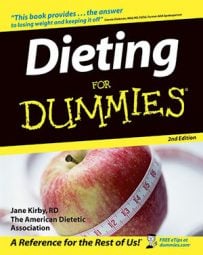From the time your mother handed you a cookie to quiet your crying, food may have become more than a way to provide nutrition. It’s a way to nourish your soul as well. Dieting to lose weight can bring up emotional issues for many people.
Regardless of your weight and whether you realize it — you eat for different reasons. You may eat to celebrate, to calm, to feel comfort or joy, or when times are darkest, perhaps you eat to relieve loneliness and boredom. How you feel about yourself and your body is likely to be enmeshed in your relationship with food. Shame and guilt may also play a role in your range of emotions that affect how you deal with food.
The first step to discovering how emotions affect your eating is to understand your relationship with food. Answer the questions in the following table as honestly as you can. Think about how frequently each question is true for you and put a check mark in the box that corresponds to your answers: sometimes, often, always, and never. By analyzing your responses, you can better understand your triggers — your strengths.
| Do you . . . | Sometimes | Often | Always | Never |
|---|---|---|---|---|
| Eat even when you’re not hungry? | ||||
| Crave certain foods and have trouble controlling the amounts of them that you eat? | ||||
| Always clean your plate? | ||||
| Find yourself in the kitchen or at the snack machine when faced with a difficult task? | ||||
| Eat when you’re stressed, angry, lonely, or tired? | ||||
| Splurge on favorite foods when you’re alone? | ||||
| Feel guilty or unworthy when you eat foods that you think you shouldn’t — especially high-calorie foods, such as fried items or desserts? |

